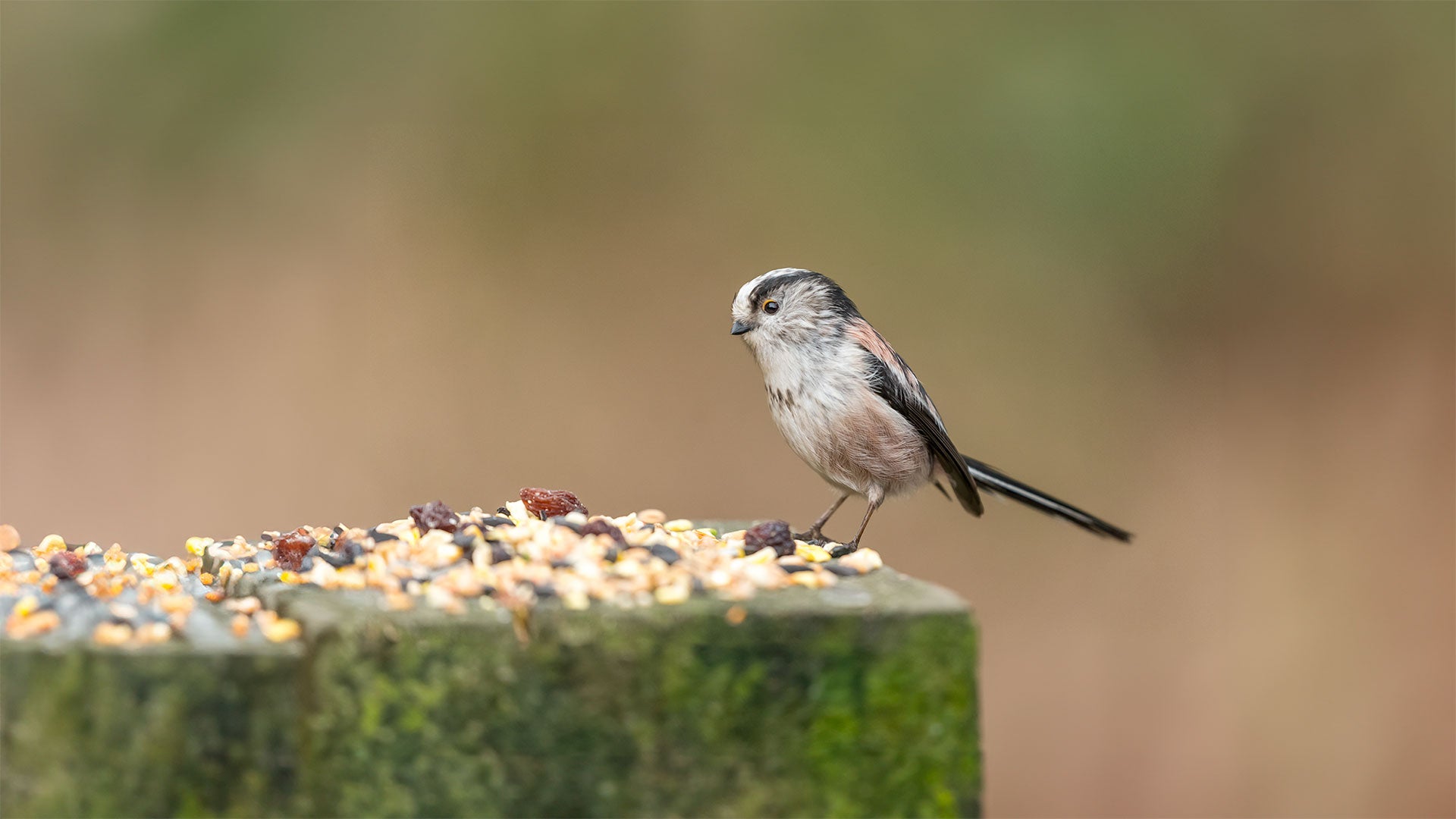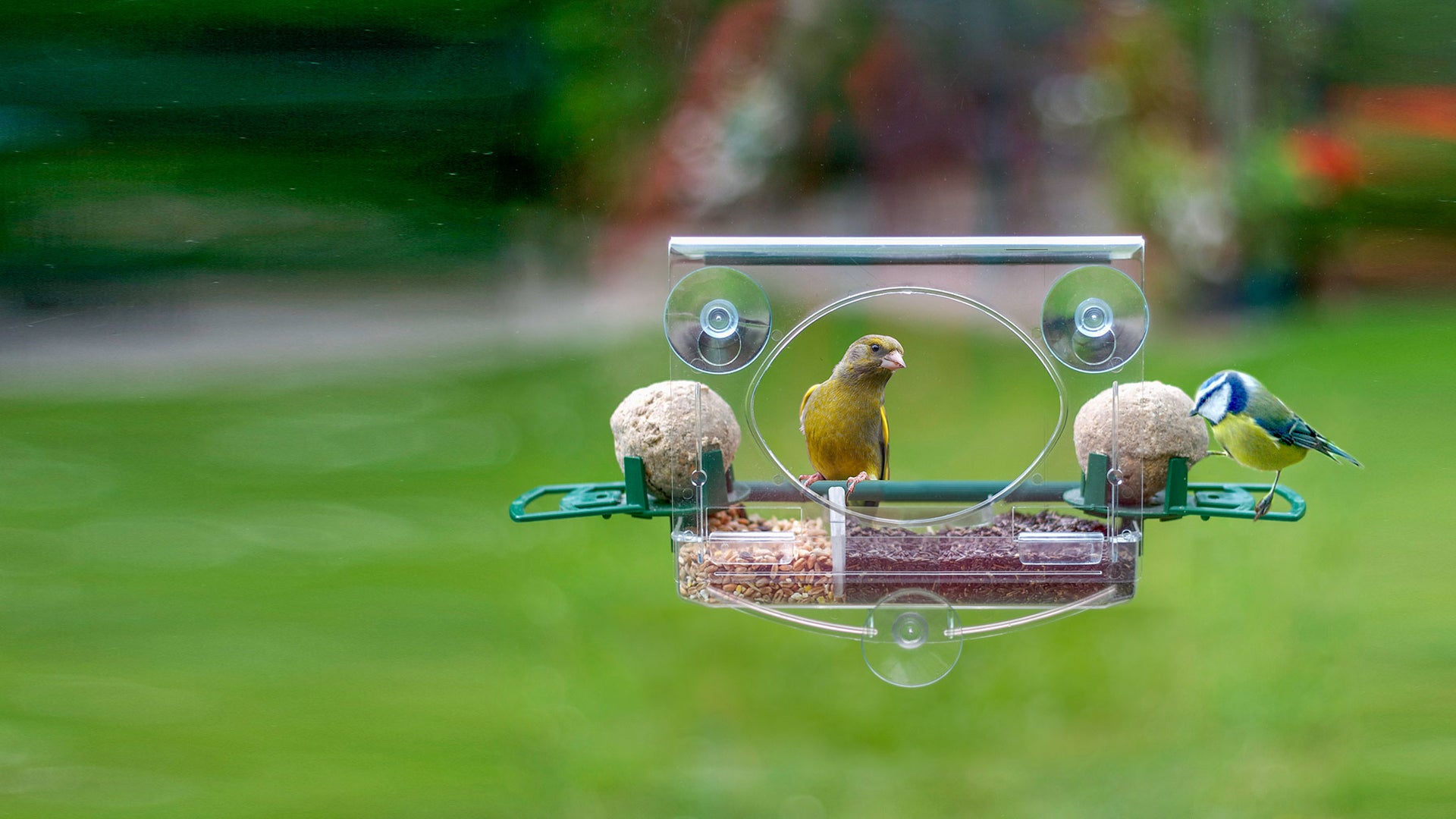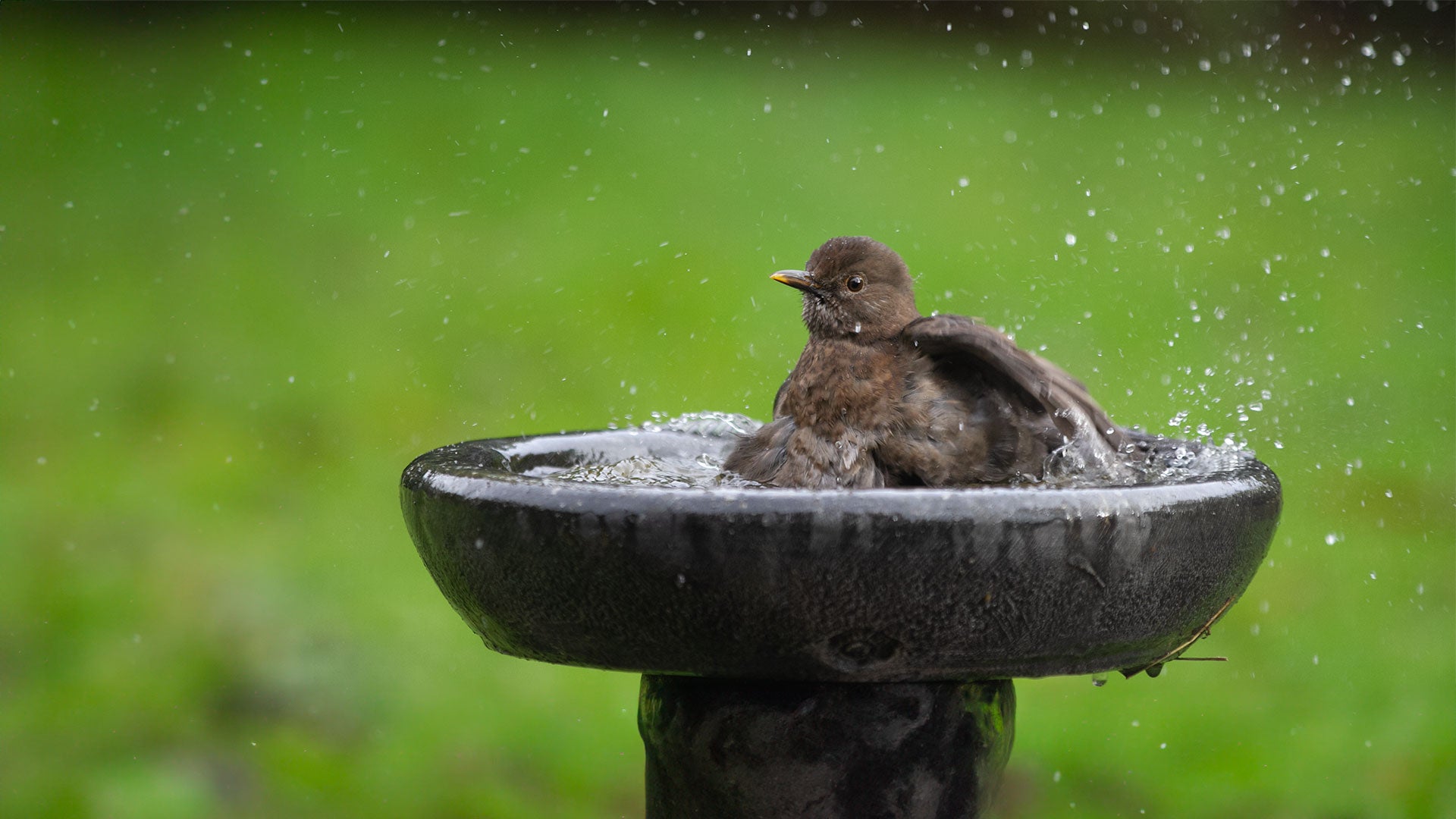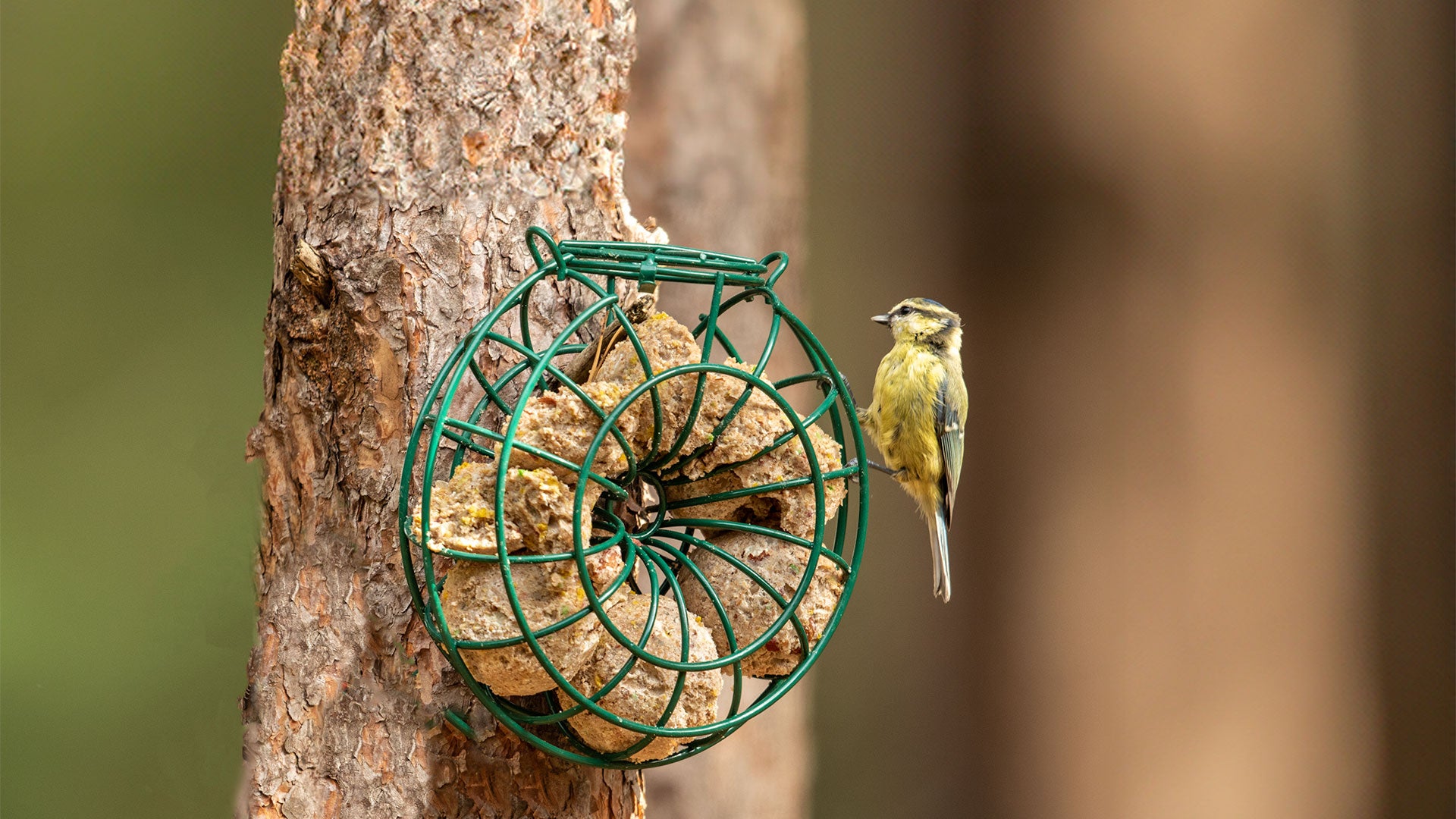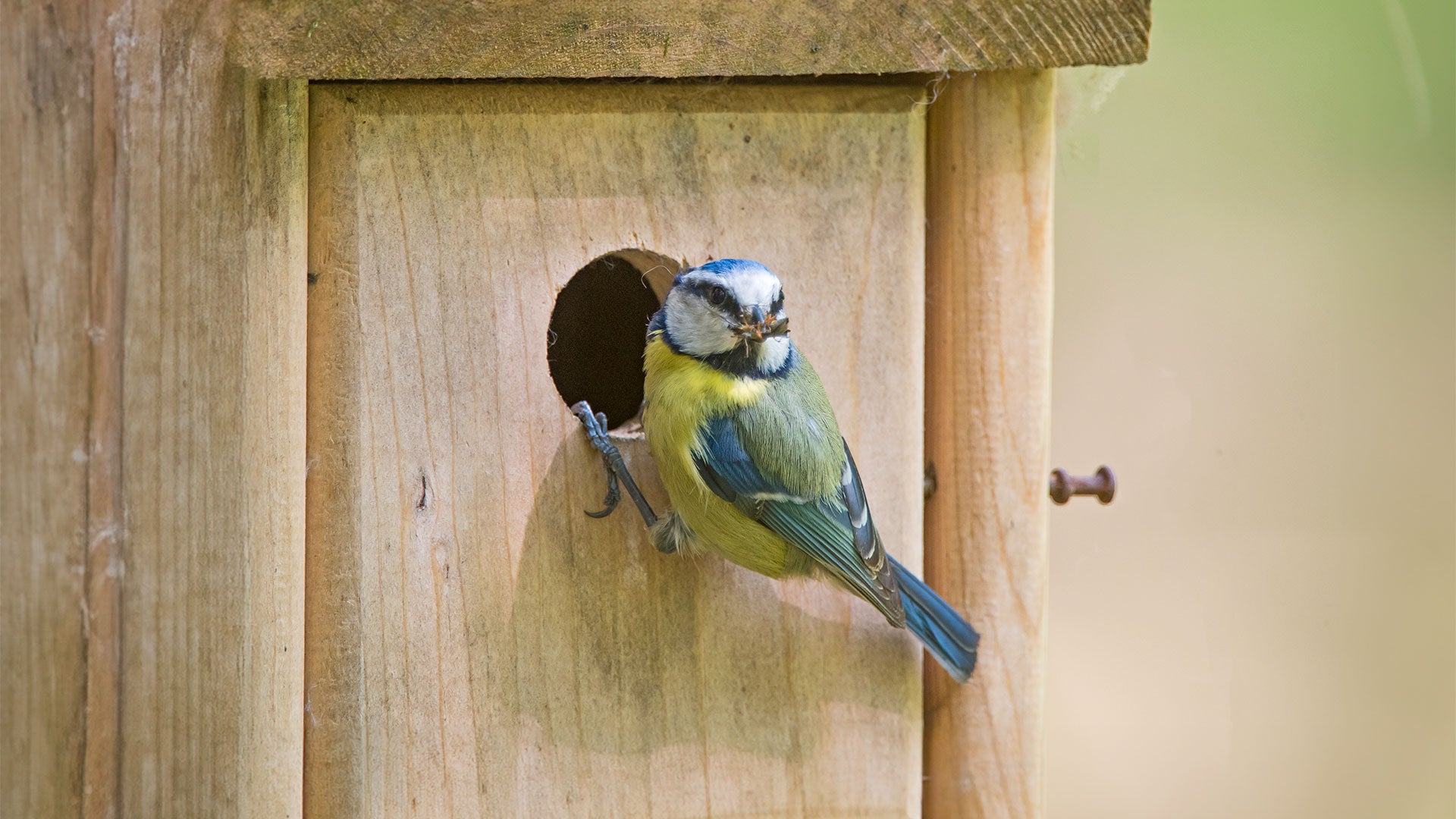The blackbird is one of the most common birds in Europe. It's also constantly appears in the top ten in both RSPB BIG Garden Birdwatch and The BTO Garden Bird Recording Scheme.
What does a blackbird look like?
Length: 25cm
The male has glossy uniform black plumage and bright orange-yellow bill and eye-ring.
The female has dark brown upper parts, lighter-brown under parts with an off-white paler throat. The bill is brown with very little yellow colouration.
Young blackbirds are paler and more rufous than the female and has noticeable streaks on the under parts. The young males have a blackish bill and browner mantle with dark brown legs. Partial albinos are quite common and can confuse the amateur observer.

Blackbirds run on the ground and hop quickly, with brief pauses. They can often be seen standing with head to one side listening for worms. When it alights on the ground, holds its tail open and raised while the wings are almost drooping. Flight is usually low and brief and although it may be seen in flocks, it is only truly gregarious on migration.
How long do blackbirds live?
Blackbirds have a relatively short life expectancy, generally living for between 3 and 4 years. The lifespan of a blackbird can vary as some do not survive their first year and others may live for longer – the oldest blackbird ever recorded was more than 20 years old.
Blackbird call and song - What does a blackbird sound like?
Its usual note is a low ‘chook-chook-chook’ which develops into a strident chattering when alarmed. The blackbird also emits an insistent ‘cheek-cheek-cheek’. Its warbling and musical song is emitted when it perches on trees or buildings, or occasionally from the ground or bushes.
Where do black birds nest?
Blackbirds nest in hedges, bushes or trees and breed from late February in the South and from March or April in the North. Nests can also be found on buildings or crevices in walls. The nest consists of a solid cup of plant materials mixed with mud, and is lined with finer grasses and other materials such as pine needles. Four or five (sometimes up to nine) eggs are laid, both will tend to the young.
Alternatively, you can site a specialist nest box in your garden to help this species.
Blackbird eggs identification - what do blackbird eggs look like?
Blackbird eggs are smooth and glossy, measuring approximately 3cm in length. They tend to be either blue or green-blue, with red-brown speckling that can give them an overall brown appearance. They are found in nests made of twigs, mud and fine grass.
Blackbird habitat
Blackbirds live in gardens, thickets, hedges and broad-leaved and coniferous forests. Also cultivated land, parks and gardens. They are common in towns and gardens.
Where should you feed blackbirds?
Feeder – Not suitable
Table – Open topped
Ground – Scatter food near cover
What do blackbirds eat in the wild?
Blackbirds feed on plants and animals, including berries, seeds, insects and earth worms.
What to feed a baby blackbird
If you find a baby blackbird out of its nest, you should not step in straight away as its parents may be nearby. However, if after watching it for some time, you feel that it needs feeding, mealworms and seeds as well as small berries and fruit are all important components of a blackbird’s diet. You can also feed them moist dog food or uncooked oats.
What to feed a blackbird in the garden?
Are blackbirds in decline?
From the 1970s through to the mid-1990s, there was a decline in blackbirds. However, between 1995 and 2008, there was a period of recovery and the species saw a rise in numbers. Today, the population of blackbirds remains stable and this species is now on the Birds of Conservation Concern green list.
What do young blackbirds look like?
Young blackbirds, also known as juveniles, can sometimes be confused with the thrush. This is because the young birds are a similar reddish-brown colour, with speckled, brown feathers. Their colour also makes them look similar to a female adult blackbird, except they often look rounder and puffier due to their downy feathers. These downy feathers get replaced with their adult feathers within the first 6 to 10 months, meaning they’ll eventually lose that puffy appearance!
How can you attract blackbirds to your garden?
The best way to attract blackbirds to your garden is with food. These birds are omnivores, enjoying both plant and animal matter. Try leaving out some mealworms and small berries, which are both particular favourites of this bird.
Blackbirds are too big to use bird feeders. Instead, they like to eat food from bird tables or off the floor. Just make sure that you create a quiet, protected area for them to eat, so they feel safe from predators. Placing the food near a bush can give the birds a natural shelter to return to after eating.


